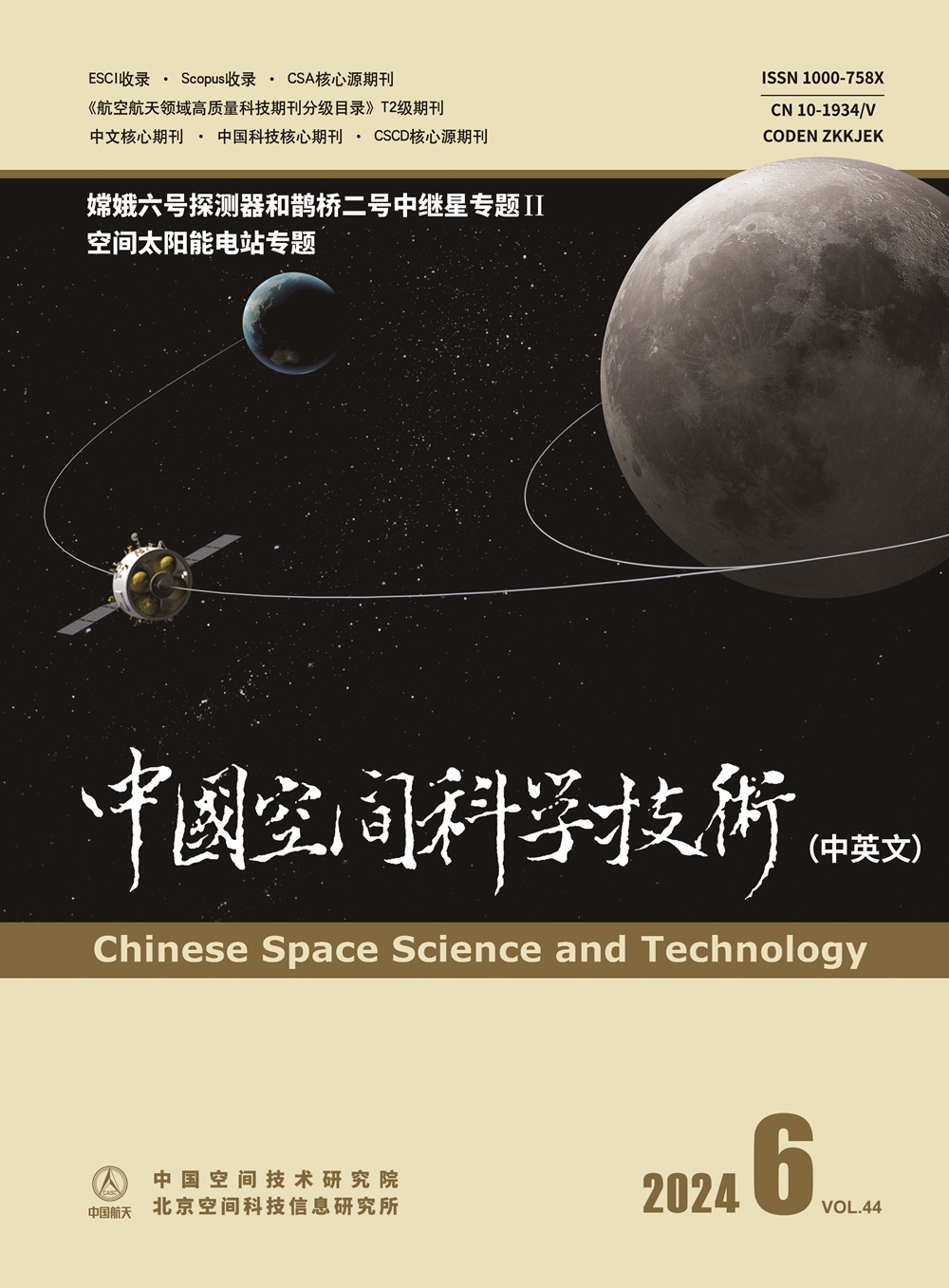基于角度测量的非合作目标定轨与推力估计
IF 0.5
4区 工程技术
Q4 ENGINEERING, AEROSPACE
引用次数: 0
摘要
经典的交互式多模型(IMM)算法在非合作连续推力机动航天器跟踪中存在稳态精度差、子滤波参数选择困难、模型跳变不匹配等缺点。针对上述问题,提出了一种变维自适应IMM强跟踪滤波算法(VAIMM-STEKF)来估计航天器的位置、速度和机动加速度状态。VAIMM-STEKF包含模型1和模型2两个模型,分别对应航天器在机动和非机动情况下的跟踪。模型1估计航天器的位置和速度,以确保在无机动情况下的跟踪精度。模型2是一个增强状态的强跟踪滤波器。自适应IMM算法根据模型输出概率实时调整固定的马尔可夫传递矩阵。针对航天器的不同状态,采用相应的模型交互融合方法,结合强跟踪滤波器,保证航天器状态变化时的快速跟踪。该方法也适用于不同数量级的连续推力机动航天器。仿真结果表明,在不同水平的机动加速度下,VAIMM-STEKF算法的位置精度比IMM算法提高了约27%,速度精度提高了约17%。VAIMM-STEKF算法的收敛速度也优于IMM算法。本文章由计算机程序翻译,如有差异,请以英文原文为准。
Orbit determination and thrust estimation for non-cooperative target using angles-only measurement
The classical interactive multimodel (IMM) algorithm has some disadvantages in tracking a noncooperative continuous thrust maneuvering spacecraft, such as poor steady-state accuracy, difficult selection of subfilter parameters, and mismatched model jump. To address the abovementioned problems, a variable-dimensional adaptive IMM strong tracking filtering algorithm (VAIMM-STEKF) is proposed to estimate the spacecraft’s position, velocity, and maneuvering acceleration state. VAIMM-STEKF contains 2 models, model 1 and model 2, which correspond to the tracking of the spacecraft in maneuvering and nonmaneuvering situations. Model 1 estimates the position and velocity of the spacecraft to ensure tracking accuracy when no maneuver occurs. Model 2 is a strong tracking filter with an augmented state. The adaptive IMM algorithm adjusts the fixed Markov transfer matrix in real time according to the model output probability. According to the different states of the spacecraft, the corresponding model interactive fusion method, together with the strong tracking filter, is adopted to ensure fast tracking when the spacecraft state changes. This method can also adapt to continuous thrust maneuvering spacecraft with different orders of magnitude. Simulation results show that the position accuracy of VAIMM-STEKF can be improved by approximately 27% and the speed accuracy can be enhanced by approximately 17% under different levels of maneuvering acceleration compared with those of the IMM algorithm. The convergence speed of VAIMM-STEKF is also better than the IMM algorithm.
求助全文
通过发布文献求助,成功后即可免费获取论文全文。
去求助
来源期刊

中国空间科学技术
ENGINEERING, AEROSPACE-
CiteScore
1.80
自引率
66.70%
发文量
3141
期刊介绍:
"China Space Science and Technology" is sponsored by the China Academy of Space Technology. It is an academic and technical journal that comprehensively and systematically reflects China's spacecraft engineering technology. The purpose of this journal is to "exchange scientific research results, explore cutting-edge technologies, activate academic research, promote talent growth, and serve the space industry", and strive to make "China Space Science and Technology" a first-class academic and technical journal in China.
This journal follows the principle of "let a hundred flowers bloom and a hundred schools of thought contend", promotes academic democracy, and actively carries out academic discussions, making this journal an important platform for Chinese space science and technology personnel to publish research results, conduct academic exchanges, and explore cutting-edge technologies; it has become an important window for promoting and displaying China's academic achievements in space technology.
 求助内容:
求助内容: 应助结果提醒方式:
应助结果提醒方式:


